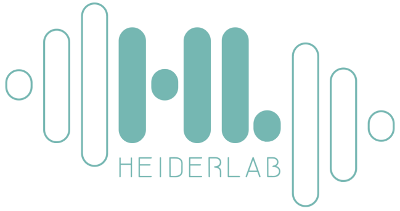CORona Drug InTEractions database
Associations of clinical characteristics and antiviral drugs with viral RNA clearance in patients with COVID-19 in Guangzhou, China: a retrospective cohort study
Xudan Chen, Yang Zhang, Baoyi Zhu, Jianwen Zeng, Wenxin Hong, Xi He, Jingfeng Chen, Haipeng Zheng, Shuang Qiu, Ying Deng, Juliana Chan, Jian Wang
Abstract
Background: The novel coronavirus disease 2019 (COVID-19) characterized by respiratory symptoms has become a global pandemic although factors influencing viral RNA clearance remained unclear to inform optimal isolation period and treatment strategies. Methods: In this retrospective study, we included patients with confirmed COVID-19 admitted to Guangzhou Eighth People's Hospital from 20th January 2020 to 15th March 2020. The associations of clinical characteristics and treatment regimens on time to viral RNA clearance were analyzed. Results: We examined 284 consecutive COVID-19 cases, accounting for 82% of confirmed cases in Guangzhou during this period. At the time of reporting (20th March 2020), 276 (97.2%) had recovered and were discharged from hospital with a median hospital stay of 18 days (interquartile range [IQR]:13-24). Overall, 280 patients achieved viral RNA clearance with a median length of 12 days (IQR: 8-16) after onset of illness. Amongst them, 66.1% had viral RNA cleared within 14 days, and 89.3% within 21 days. Older age, severity of disease, time lag from illness onset to hospital admission, high body temperature, and corticosteroid use were associated with delayed clearance of viral RNA. None of the antiviral regimens (chloroquine, oseltamivir, arbidol, and lopinavir/ritonavir) improved viral RNA clearance. The use of lopinavir/ritonavir was associated with delayed clearance of viral RNA even after adjusting for confounders. Conclusion: In patients with COVID-19, isolation for a minimum of 21 days after onset of illness may be warranted, while the use of antiviral drugs does not enhance viral RNA clearance.
Source: MedRxiv
Related molecules
Related interactions
| Target | Drug | Type | Result |
|---|---|---|---|
| Unspecific | Chloroquine | ||
| Unspecific | Oseltamivir | ||
| Unspecific | Umifenovir | ||
| Unspecific | Lopinavir | ||
| Unspecific | Ritonavir |
| Target | Target affiliation | Drug | Type | Result |
|---|---|---|---|---|
| Target | Target affiliation | Drug | Type | Result |
| Name | Synonyms | Genes | Origin |
|---|---|---|---|
| Name | Synonyms | Genes | Origin |
| Name | Synonyms | PubChem | DrugBank | RCSB PDB | ATC |
|---|---|---|---|---|---|
| Name | Synonyms | PubChem | DrugBank | RCSB PDB | ATC |
| Title | Authors | DOI | Source | Article type | Date |
|---|---|---|---|---|---|
| Title | Authors | DOI | Source | Article type | Date |
| Title | Status | Phases | Start Date | Prim. Comp. Date | Comp. Date | First Post. Date |
|---|---|---|---|---|---|---|
| Title | Status | Phases | Start Date | Prim. Comp. Date | Comp. Date | First Post. Date |
CORDITE (CORona Drug InTEractions database) collects and aggregates data from PubMed, MedRxiv, BioRxiv, ChemRxiv and PMC for SARS-CoV-2. Its main focus is set on drug interactions either addressing viral proteins or human proteins that could be used to treat COVID. It collects and provides up-to-date information on computational predictions, in vitro, as well as in vivo study data.
The information provided is for research only and we cannot guarantee the correctness of the data.
Please contact dominik.heider@uni-muenster.de for further information.
Programmable access
There is an open API for access programmatically to the database. The API will print a JSON output:
- Interactions
https://cordite-api.uni-muenster.de/api.php?action=list&table=interaction
- Targets
https://cordite-api.uni-muenster.de/api.php?action=list&table=target
- Drugs
https://cordite-api.uni-muenster.de/api.php?action=list&table=drug
- Publications
https://cordite-api.uni-muenster.de/api.php?action=list&table=publication
- Clinical trials
https://cordite-api.uni-muenster.de/api.php?action=list&table=clinical_trial

